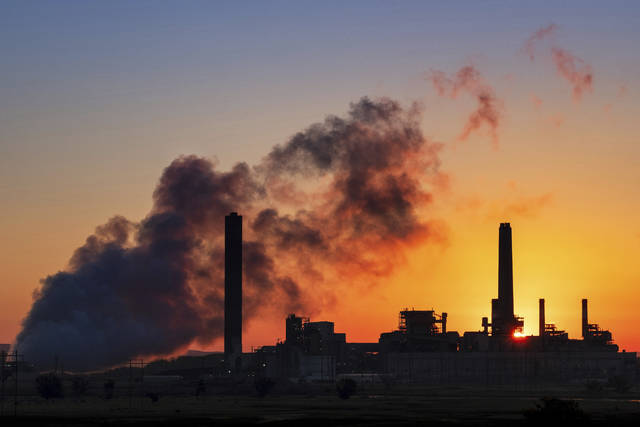We have all heard the ongoing allegations of toxic pollution spewing from big business destroying our environment and killing us, cancer rates and respiratory diseases on the increase because of big businesses polluting for profit. These are some of the many emotionally charged allegations leveled by environmental groups.
These types of allegations are many times overstated. Consider a couple of examples.
Air quality
The Clean Air Act required and the U.S. Environmental Protection Agency established national ambient air quality standards for pollutants considered harmful to public health and the environment. As a measure of the quality of air in our country, the U.S. EPA maintains data and statistics that quantify air quality over the past decades. Based on the U.S. EPA’s own data, the national ambient air quality standards for the target pollutants have all steadily and dramatically improved. As a national average:
• Carbon monoxide has been reduced 85%
• Ozone has been reduced 35%
• Lead has been reduced 98%
• Nitrogen oxides have been reduced 62%
• Particulate matter as PM10 has been reduced 46%, and fine particulate matter as PM 2.5 has been reduced 43%
• Sulfur dioxide has been reduced 92%
Regardless of these facts, according to certain environmental groups, the quality of the air in our country is as bad as it has ever been and is literally killing us. This is the typical type of talking point used as they seek to attack our economic abundance delivered by our producers and manufacturing industries. Alternatively, a practical balance reflecting the need for production for economic vitality and regulating activity seems most prudent.
Nobody is suggesting to stop efforts addressing pollution issues that may harm human health or the environment. However, harm caused by the dramatically improved air quality here in our country appears to be overstated in many instances.
Oil
Nobody would argue that major oil spill events like the Exxon Valdez or the BP oil spill in the Gulf of Mexico are good for the environment, but we must put these events into the context of the earth’s natural processes. According to the National Research Council (NRC) of the U.S. National Academy of Sciences, “natural oil seeps contribute the highest amount of oil to the marine environment.” NOAA describes a natural seepage area in California: “One of the best-known areas where this happens is Coal Oil Point along the California Coast near Santa Barbara. An estimated 2,000 to 3,000 gallons of crude oil is released naturally from the ocean bottom every day just a few miles offshore from this beach.”
Many who are swayed by the emotional argument of certain environmental groups are unaware of the natural processes involved with oil releases to the oceans. In fact, these marine oil seeps offer clear markers for focusing oil exploration activities in the ocean basins. One of the side effects of offshore oil production has been the reduction of oil and gas seepage due to decreases in subsea oil-reservoir pressure. The presence of oil in the oceans is, in fact, to a large extent only natural.
There needs to be a balance between the benefits and conveniences to our lives and the probability of being reasonably protective of our health. Mortality is well-established at 100%. There cannot be a no-exposure scenario; some amount of health risk from exposure to naturally occurring and economic-related activity is inherent in being alive.
The carcinogen arsenic is present in the earth’s crust and consequently in drinking water. Our summertime outdoor grills create carcinogenic compounds by charring organics that we then consume. Some prefer to combust and inhale many types of organic material that creates carcinogenic and other health-harmful compounds. Chlorine is added to our drinking water to mitigate against many disease-causing agents, while some studies infer an increase in bladder cancer related to the use of chlorine in drinking water. The list is almost endless.
For man-made contributions of chemicals to the environment, additions to the natural level of chemicals present typically occur not on a whim, but rather to enhance our daily lives, make them easier, provide products that extend our lives or mitigate other issues that arise as a result of modern life. Certain environmental groups seem intent on controlling our activity here on earth and allocating resources as only they see fit. Apparently to their way of thinking, their control of these activities is only natural.
Robert Smith is vice president and senior environmental scientist for Duquesne-based KU Resources Inc.








